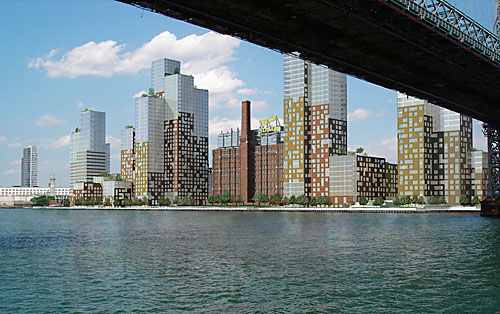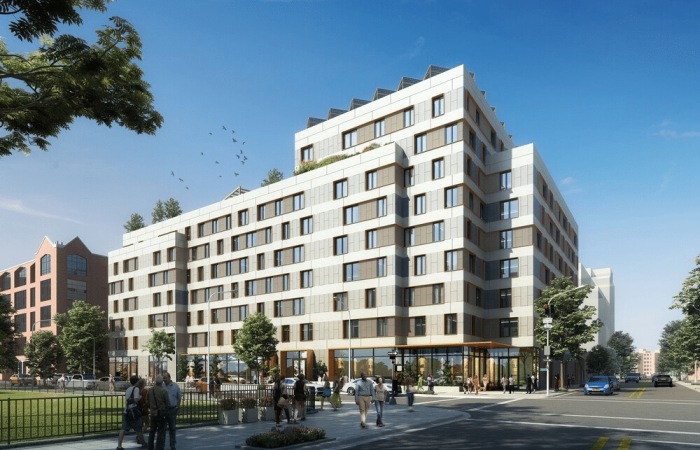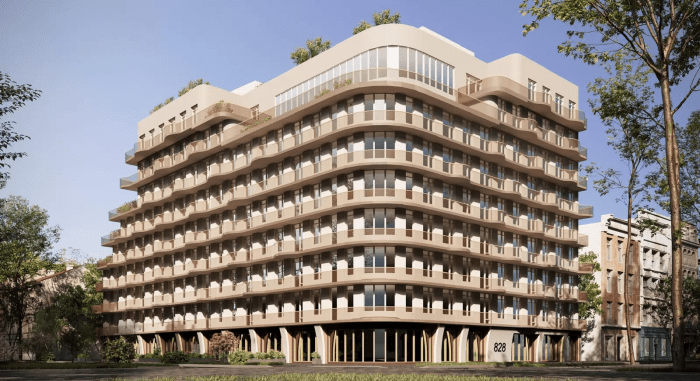Community Board 1 rejected the $1.2-billion redevelopment of the old Domino Sugar factory on Tuesday night.
The 23-12 vote backing the board’s land-use committee vote last week is the second hurdle for the Community Preservation Corporation, which will need the support of Borough President Markowitz, the City Planning Commission and the City Council to build a multiple-skyscraper project along the Williamsburg waterfront that is larger than the zoning currently allows.
At the board meeting, CPC representatives continued their promise to price 30 percent of their 2,200 units at below-market rates. That 30 percent is higher than the required 20 percent set forth by the 2005 Greenpoint/Williamsburg waterfront rezoning, but CB1 members said they wanted more from the developers — including a pledge to help create better transportation around the growing western edge of Williamsburg; permanent affordability; reduced building density; and more open space among them.
Developers said that many of the board’s questions have been answered already.
“We’re working with a great project, and we’re committed to permanent affordability,” said Susan Pollock, senior vice president of the development company, which bought the site just north of the Williamsburg Bridge in 2004 after Domino shut down operations. “We’re going to continue fighting.”
The community board vote is merely advisory to Markowitz’s decision, which could come after his public hearing on Thursday. The borough president’s decision may simply be a suggestion, too, considering that the City Planning Commission just voted contrary to his rejection of the Rose Plaza complex, also on the Williamsburg waterfront.
Along with promising affordability, Pollock has been straightforward with her discussion of density — without the rezoning to allow for lucrative tall towers, the 30 percent affordability could not happen.
“The density of this project is required in order to make the entire program work,” she said at the land-use committee meeting last month.
She added that CPC is willing to make changes to the six-phase project if the system of housing and retail space in the first site — the refinery’s former parking lot on Kent Avenue between South Third and South Fourth streets — doesn’t work as planned.
But as for Community Board 1, the consensus followed the committee’s main question: will the Domino project actually benefit the neighborhood as a whole?























